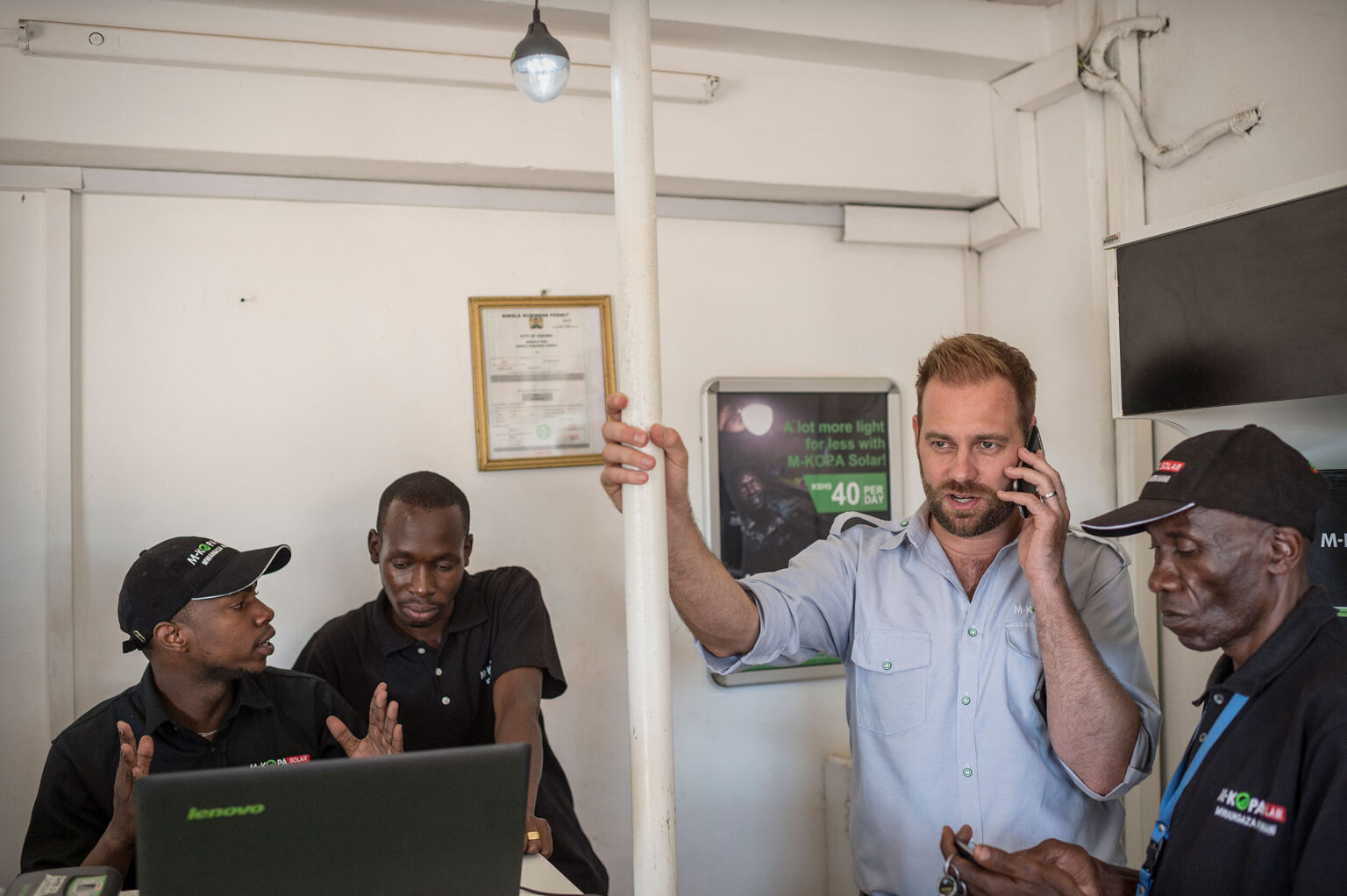- M-KOPA enables underbanked customers in select African markets to access a broad range of products and services without collateral or a guarantor.
- M-KOPA has raised $190 million over the past decade
- M-KOPA is known majorly for its pay-as-you-go (PAYG) financing model that allows customers to build ownership of appliances over time by paying an initial deposit followed by flexible micro-payments
- M-KOPA is looking to expand its flexible daily and weekly payments model by scaling financial services products such as health insurance, cash loans and BNPL merchant partnerships
M-KOPA began commercial sales in Kenya in October 2012 following 2 years of piloting and development.
The young startup expanded to Uganda a year later and commenced operations in Tanzania in late 2014.
The company, led by co-founder and CEO Jesse Moore started with solar-power home systems targeted at lower-income and rural customers without electricity in Kenya, Tanzania and Uganda.
Known majorly for its pay-as-you-go (PAYG) financing model that allows customers to build ownership of appliances over time by paying an initial deposit followed by flexible micro-payments, the firm has grown exponentially over the past decade.
The firm which enables underbanked customers in select African markets to access a broad range of products and services without collateral or a guarantor announced that it has raised $75 million.
This is the fifth equity round of debt raised since its inception bringing M-KOPA’s total equity raised to $190 million.
Since the firm was launched in Nairobi, Kenya in 2012, the company has expanded its pay-as-you-go model to include other needs: smartphones (launched in Kenya two years ago), TVs, refrigerators, solar lighting and digital financial services such as cash loans and health insurance.
Initially, M-KOPA was heavily focused on East Africa, but having pulled out of Tanzania, M-KOPA is currently present in Kenya, Uganda, Nigeria and Ghana.
In a statement, the firm indicated that the recent round of funding will go into launching in one new market this year and in 2023. It will also use the new round of capital to expand its offerings in Nigeria over the second half of 2022 and in Ghana over the first quarter of 2023.
With the new investment, the firm is looking to expand its flexible daily and weekly payments model by scaling financial services products such as health insurance, cash loans and BNPL merchant partnerships.
Additionally, M-KOPA plans to spend heavily and further strengthen its customer relationship and tech.
Previous backers including the CDC Group and LGT Lightrock took part in this round alongside LocalGlobe’s Latitude Fund and HEPCO Capital Management. Generation Investment Management and Broadscale Group led the growth equity round.
READ: M-KOPA Solar Connects 250,000 Homes To Power in East Africa
Although the firm has been around for a decade, its sales largely picked up when the coronavirus pandemic hit the continent. This, coupled with the introduction of smartphone financing, drove the company’s customer base and hiring off the charts.
While M-KOPA took about eight years to reach its first million customers, it only required 18 months to acquire its second million, which it just surpassed last month.
CEO Moore said the company’s customer base is projected to reach 3 million customers in the next nine months, having more than doubled the growth of new customers from 2020 to 2021.
The firm has added over 500 full-time positions across its four markets in the last two years while its sales force quadrupled from 2,500 in the beginning of 2020 to an active seller base of 10,000 in 2021.
Moore said his company plans to increase that number twofold to 20,000 by the end of this year.
To date, M-KOPA claims to have unlocked over $600 million in financing for its 2 million underbanked customers across its markets.
“We are enabling customers who otherwise could not have been able to access that kind of support, to then plough that back into productive assets that are helping them generate more income in their lives,” M-KOPA COO Mayur Patel said.
“When we go back to our customers, which we do regularly, and ask them how they use the products or services, over 30% of them report back to us saying they use this to kind of generate additional income and support their livelihoods.”
While the in company’s more established markets, Kenya and Uganda, customers can access the full suite of M-KOPA’s offerings, customers in newer markets are only eligible for smartphone financing at the moment.
This according to the firm is because people need smartphones more than they need solar systems.
Patel said this is evident from M-KOPA’s numbers as of July 2021 which indicate that over the past 18 months the firms sold 500,000 smartphones, half the units solar systems managed in 10 years.
“At the moment when we launch in our new markets, we start with one product which is our smartphone financing. We obviously have a broader portfolio of products in our more mature markets, but to enable a rapid scale-up and to facilitate the early execution in a new market, we start just on the device financing,” he said.
Africa’s Growing PAYG Market
Data by the World Bank released in 2019 indicates that 85 per cent of Africans live on less than $5.50 per day. A large percentage of whom are unbanked and underbanked. This means a majority of Africans do not have access to credit and cannot afford to make direct purchases.
This has largely driven the growth of the continent’s pay-as-you-go space.
This is evident through the creation of companies that not only provide cheap financing models but also capitalise on providing solar-powered products to tap into rural dwellers who may not be connected to the national grid.
Other such firms providing similar solutions include PEG Africa and Bboxx as well as SafeBoda, Asaak and Tugende which provide smartphone and motorcycle financing for riders.
READ: M-Kopa addressing Kenya’s energy needs, a fridge at a time
